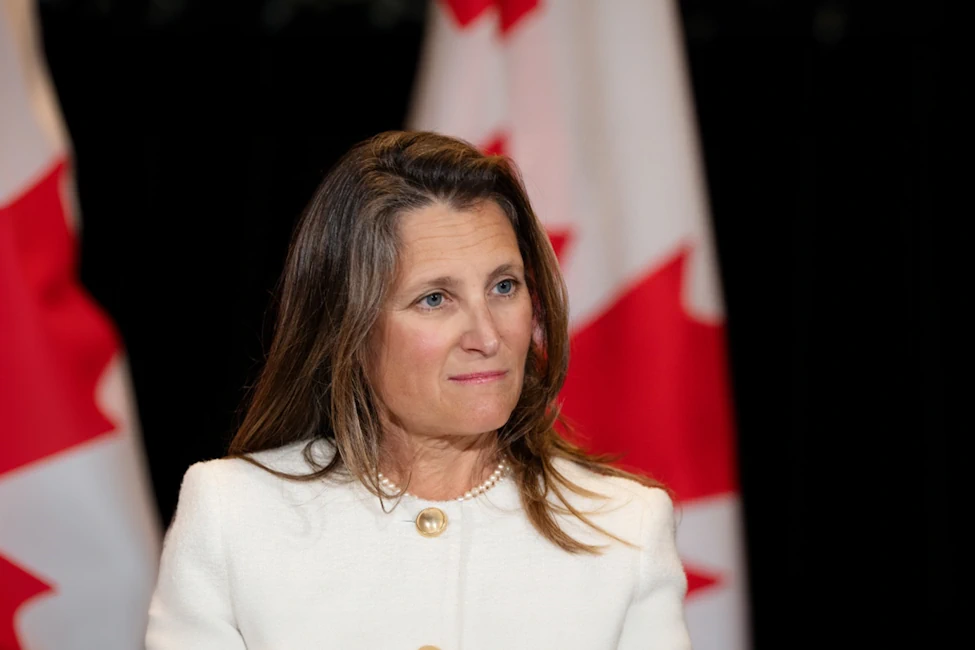In a major win for Canadian entrepreneurs and business owners, long-awaited carbon pricing rebates are finally on their way. Finance Minister Chrystia Freeland announced on Tuesday that small and medium-sized businesses will receive their refunds before the end of this year, ending what many see as an extended period of uncertainty for business owners across the country.
The federal government plans to disburse over $2.5 billion to around 600,000 businesses in December, a significant relief to many small enterprises struggling with increased operational costs. This move, according to the Finance Department, aims to redistribute a portion of the carbon price revenue collected from 2019 to 2024, specifically targeting jurisdictions where the federal fuel charge is in place.
How Much Are Entrepreneurs Getting Back?
The rebate amount will vary based on factors such as province of operation and the number of employees a business has. For instance, a business in Ontario with 10 employees is expected to receive $4,010, whereas a much larger business in Saskatchewan employing 499 workers will see a rebate of $576,844. This variability highlights how the federal government is adjusting the relief based on local conditions and workforce scales, giving tailored support to a range of business owners.
“These are real, significant sums of money,” Freeland emphasized at a press conference. “They’re going to make a big difference to Canadian small businesses.” For many entrepreneurs, these refunds couldn’t come at a better time, as inflation and rising costs have put immense pressure on their bottom lines.
Government Moves to Cut Transaction Fees
The good news doesn’t stop there. Starting October 19, the federal government will implement reduced credit card transaction fees for small businesses—a move projected to save entrepreneurs around $1 billion over the next five years. This reduction, paired with the revised code of conduct for the payment card industry, aims to provide more transparency and quicker resolutions when businesses face payment disputes.
The updated code will allow business owners to better compare offers from different payment processors and has slashed the complaint handling time from the current 100 days to just 20 business days—a nearly 80% reduction that promises to streamline financial headaches for countless entrepreneurs.
Dissatisfaction Persists Among Business Groups
Despite these rebates and fee reductions, not all Canadian entrepreneurs are convinced. The Canadian Federation of Independent Business (CFIB) has voiced appreciation for the rebate but insists that the carbon tax itself is detrimental to small enterprises. According to CFIB, 83% of small firms now oppose the carbon tax, and they continue to call for its abolition.
“While CFIB welcomes the government’s fulfillment of its commitment to return a portion of carbon tax revenues, it’s clear that the vast majority of small firms oppose the tax itself. We will keep urging all political parties to eliminate the carbon tax at the earliest opportunity,” CFIB stated. This sentiment reflects a wider frustration among business owners who see the carbon levy as an additional burden amid an already challenging economic landscape.
New Tariffs on Chinese Goods: A Double-Edged Sword for Entrepreneurs?
In a separate but crucial development, the government announced that the final list of Chinese-made aluminum and steel products will soon face a 25% tariff, effective October 22. This follows the 100% tariff on Chinese-made electric vehicles that came into force on Tuesday. While these tariffs aim to support domestic industries and reduce reliance on Chinese imports, they may also lead to increased costs for some Canadian manufacturers and entrepreneurs who rely on these materials for their businesses.
The news of tariffs has left many business owners weighing the pros and cons. While protecting local industries is commendable, rising costs on imported materials could put further pressure on manufacturers and developers struggling with supply chain issues.
The Big Picture for Canadian Business Owners
The government’s recent announcements are a mixed bag for Canadian entrepreneurs. On the one hand, rebates and fee reductions will provide tangible, immediate relief to cash-strapped small and medium-sized businesses. On the other hand, ongoing concerns about the carbon tax and new tariffs underscore the complexities and challenges that business owners are facing.
Whether these moves ultimately boost confidence among the entrepreneurial community remains to be seen. What’s clear is that for many business owners, navigating government policies has become as much a part of their job as running their companies.







